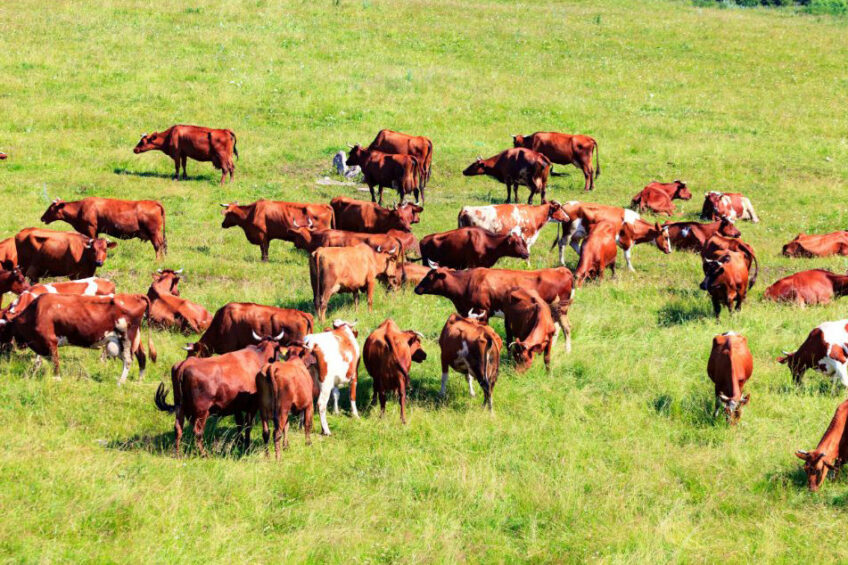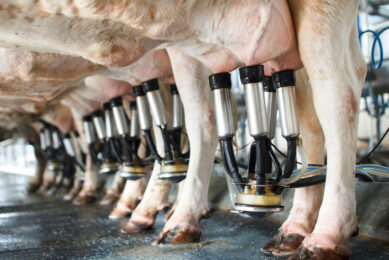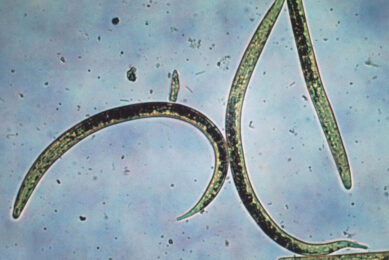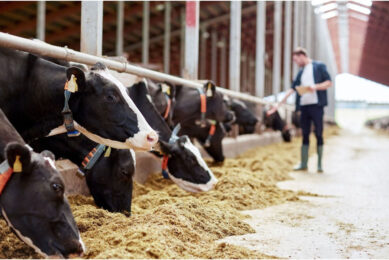Sustainable control of parasites in dairy cattle

A voluntary initiative has been set up to provide evidence-based information to the UK dairy and beef industries to sustainably treat gut and lung worms, liver and rumen fluke, lice and insects pests and parasites.
COWS (Control of Worms Sustainably) is an independent industry-led group that works in the best interests of the UK cattle industry, recognising that anthelmintic resistance is one of the largest challenges to the future health, welfare and profitability of the cattle industry.
Parasites represent an important threat to optimising performance in both beef and dairy cattle and can affect feed conversion efficiency, growth rates and fertility if cattle are carrying large burdens of internal and external parasites in suckler and dairy herds.
The COWS framework
· Encourage cattle farmers to work out a worming strategy for different groups with their vet or SQB/RAMA – ideally as part of the Herd Health Plan.
· Use wormers only when necessary – testing before treatment to make sure they are really needed.
· Consider the effects on the environment of any anthelmintic given.
· Follow the COWS guidance for anthelmintics – using the 5 Rs, being the Right product, Right animal, Right time, Right dose rate and administered in the Right Way.
· Test the efficiency of the wormer on the farm to check whether resistant worms are present.
· Quarantine imported animals to avoid introducing resistant strains.
COWS member Bruce Thompson is an 8th generation commercial dairy farmer from Ballyfin, County Laois, Ireland. Thompson runs a herd of over 300 cows and is passionate about dung beetles and their merits to agriculture and the wider environment.
He is also passionate about responsible medicine use and, where possible, reducing medicine use through prevention strategies with a particular focus on wormers.
“Being the current farmer member on COWS has really broadened my perspective on the area surrounding parasite management and ruminant health. Collaborating with a variety of stakeholders with different areas of expertise means there is a fully rounded view being taken that ensures all aspects are considered when it comes to creating new advice and implementing new technologies, from a legislative, scientific and ground force perspective
Parasite management
“I would encourage farmers to refer to the impartial COWS advice when it comes to parasite management. We have to appreciate that our current parasite control strategy has to transform to a parasite ‘management’ approach due to resistance, environmental, food security, climate change and primary resource challenges,” he added.
COWS veterinary member Rob Howe has collaborated with the Responsible Use of Medicines Alliance (RUMA) to help raise the profile of the organisation. He says it’s important that practising vets pay attention.
“I was asked to join the COWS group in 2020 because of my interest in regenerating farmed landscape, which had led to work I was doing in practice to deliver a different approach to the control of parasitic diseases in cattle. If a blanket approach to using wormers is taken, this could render them useless while damaging the fragile ecosystem that makes livestock farming viable.
“This common approach to wormer use not only costs more but potentially reduces animal resilience as cattle are less able to build natural immunity. It also increases the likelihood of wormer resistance, particularly to Group 3 Ivermectin anthelmintics.”
Howe says the COWS group has been key to helping form ‘Integrated Parasite Management’, a shift towards diagnostic-led treatments and prevention. “The aim is to improve animal health, minimise resistance to multiple pour-on treatments and boost soil and ecosystem health, leading to further productivity, while saving farmers time and money,” he said.
Mark Pass has been an AMTRA Registered Animal Medicine Advisor (RAMA), also known as an SQP for nearly 20 years and he believes that COWS can lay a key role in his job. “With the SQP having that extra knowledge and confidence this can transfer to the farmer, giving them more trust in their SQP whom they will naturally see much more frequently than their vet.”









